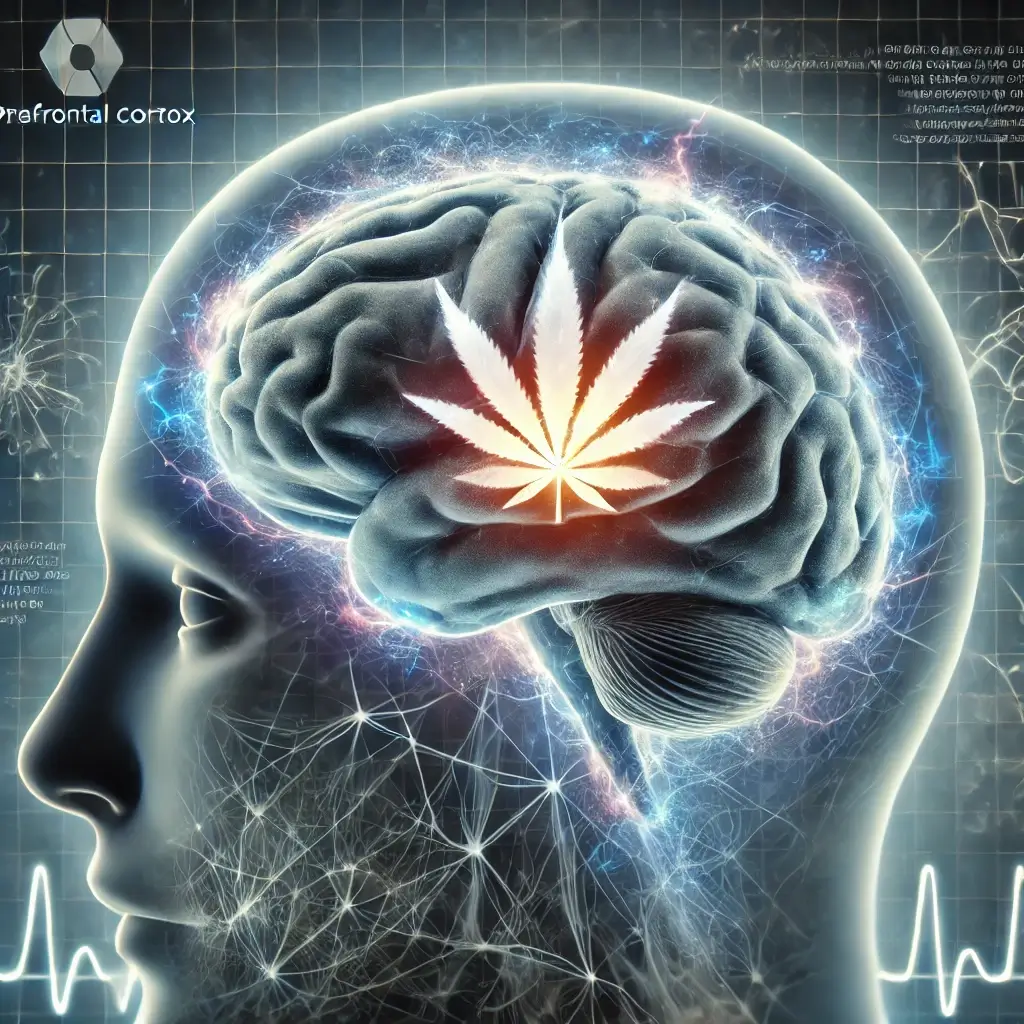THC’s Interference with Brain Function
THC can interfere with brain function, specifically in the prefrontal cortex, a crucial region responsible for important cognitive processes such as decision-making, memory, and self-control.
Detailed Exploration of THC’s Effects
Functional magnetic resonance imaging (fMRI) studies have demonstrated that tetrahydrocannabinol (THC), the main psychoactive component in cannabis, diminishes the connectivity and communication among brain cells, namely in the prefrontal cortex. This brain region is essential for complex cognitive processes, including decision-making, problem-solving, and impulse control.
Neurobiological Rationale for Cognitive Decline
The decrease in neuronal connection and communication within the prefrontal cortex offers a possible neurobiological rationale for transient cognitive decline frequently seen by cannabis users. THC’s interaction with the endocannabinoid system in the brain can interfere with the regular functioning of the prefrontal cortex, resulting in challenges in tasks that necessitate concentrated attention, logical reasoning, and executive control.
Impact on Emotional Regulation
Additionally, the prefrontal cortex regulates emotional reactions and integrates cognitive and emotional functions. Diminished synaptic connectivity within this specific cerebral area may potentially contribute to the modified perceptual phenomena and fluctuations in mood and emotional conditions that are frequently linked to cannabis intoxication.
Complexity of Cannabis Effects
It is crucial to acknowledge that the impact of cannabis on the brain can be intricate and diverse, as it is contingent upon variables such as the dosage, the individual’s genetics, and the user’s cannabis usage history. However, the results from fMRI studies emphasize the substantial influence that THC can exert on the brain systems that support cognitive and executive functions.
Reduced Stability in Prefrontal Cortex
THC interferes with the stability of these connections in the prefrontal cortex. This could impede the brain’s ability to adapt and respond effectively to novel situations or evolving inputs.
Global Decline in Prefrontal Cortex Activity
Studies indicate that THC is associated with a global decline in activity in the prefrontal cortex. This may lead to decreased cognitive processing speed and compromised decision-making abilities.
Consideration of Potential Impacts
It is crucial to consider these potential impacts, particularly if you are concerned about activities that necessitate concentration, logical reasoning, or prompt decision-making.
